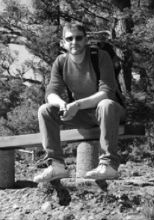Patrick Côté

Position
Contact
Area of expertise
Galactic structure, galaxies and clusters, wide-field astronomy
Research
My research interests lie in the areas of stellar populations, stellar and galactic dynamics, the structure of dark matter halos, galaxy scaling relations, central mass concentrations in galaxies, nuclear and globular star clusters, dwarf galaxies, and the halos of the Milky Way and Andromeda.
I am the Principal Investigator of the ACS Virgo Cluster Survey (ACSVCS) − the largest imaging survey of galaxies in the nearby universe ever conducted with the Hubble Space Telescope (HST). With more than 2400 citations to date, the ACSVCS is one of the highest impact programs in the history of HST.
I am the Principal Investigator of the successor to the ACSVCS − the ongoing the Virgo Redux Survey and I am also leading a large imaging survey of ~40 substructures in the outer halo of the Milky Way using MegaCam on CFHT.
In addition, I am a co-founder of the ACS Fornax Cluster Survey (ACSFCS) and the Next Generation Virgo Cluster Survey (NGVS), as well as an active member of the Pan Andromeda Archeological Survey (PAndAS), CFHT-Pristine and CFHT Legacy for the U-band All-sky Universe (LUAU) surveys.
Instruments and Facilities
I am an observational astrophysicist who works primarily in the ultraviolet, optical and infrared spectral regions. As a principal research officer at the NRC Herzberg Astronomy & Astrophysics, a significant fraction of my time is devoted to science support for the next generation of Canadian astronomical facilities, both on the ground and in space. Major initiatives include:
-
The Next Generation CFHT (Maunakea Spectroscopic Explorer). From 2010 to 2013, I led international efforts to redevelop the 3.6m Canada-France-Hawaii Telescope into a dedicated, wide-field spectroscopic facility. A major scientific and technical concept study of ngCFHT/MSE was completed in 2013. More information on the project is available at the MSE Project Office website.
-
CASTOR: A Wide-Field Imaging Space Telescope. From 2007 to 2009, I chaired the CSA Discipline Working Group on wide-field UV/optical/IR imaging from space. A copy of the final DWG report is available here. Our recommendations that Canada either: (1) participate in a significant capacity in an international Dark Energy mission, or (2) proceed with a CSA-led wide-field imaging space telescope, emerged as the top priorities for space astronomy in the 2010 Long Range Plan for Canadian Astronomy. I participated in a CSA-sponsored Dark Energy Mission Contribution Concept Study in 2010-2011, and since 2011 I have served as Principal Investigator for a Canadian Space Telescope mission concept study. For more information on the mission concept that emerged from this study, see the website for CASTOR − The Cosmological Advanced Survey Telescope for Optical and UV Research. CASTOR is a nearly diffraction-limited, 1m-class UV-optical wide-field imaging telescope that would be launched in the early 2020s. For an update on the CASTOR project, see the invited white paper prepared for the LRP Mid Term Review process.
-
The Thirty Meter Telescope (TMT). Since 2005, I have been actively involved in the TMT project as a member of the science team for the Wide Field Imaging Spectrograph (WFOS) and, more recently, for the Infrared Imaging Spectrograph (IRIS). I have also served intermittently as a member of the TMT Science Advisory Committee.
-
The Ultraviolet Imaging Telescope (UVIT). Since 2006 I have been a member of the science team for the Ultraviolet Imaging Telescope (UVIT). This wide-field UV imager − a collaboration between the Canadian Space Agency (CSA) and the Indian Space Research Organization (ISRO) − is scheduled for launch as part of the Astrosat mission in 2015.
